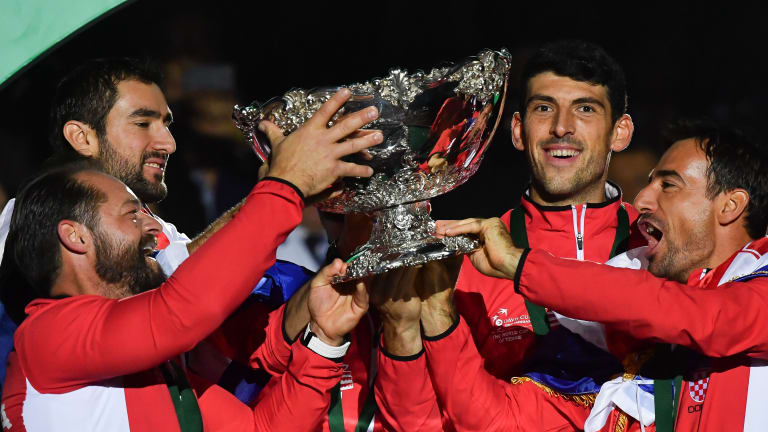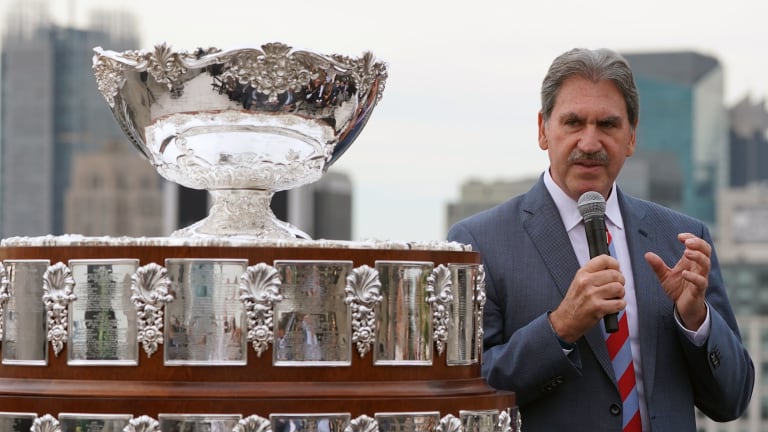Running for ITF president, Dave Miley wants to fix broken system
By Sep 19, 2019Social
Mirra Andreeva did, in fact, put Andy Murray's famous complimentary tweet in a frame
By Apr 26, 2024Madrid, Spain
Ready (in) '24: Tommy Paul turns injury break into clay-court training bloc, aims to peak at Roland Garros
By Apr 26, 2024Madrid, Spain
Carlos Alcaraz begins Mutua Madrid Open title defense, defeats Alexander Shevchenko
By Apr 26, 2024Defending champion Sabalenka advances at Madrid Open with a 3-set win over Linette
By Apr 26, 2024Pop Culture
New movie Challengers asks: Where does tennis take us?
By Apr 26, 2024Madrid, Spain
Aryna Sabalenka defeats Magda Linette, begins Mutua Madrid Open title defense
By Apr 26, 2024Social
Shelby Rogers dishes on the viral social media video that went all the way to Will Smith
By Apr 26, 2024Open Up: A Player Portrait
Grigor Dimitrov’s open heart is a driving force behind his career renaissance
By Apr 26, 2024Travel
Destination Tennis: Owl’s Nest Resort
By Apr 26, 2024Running for ITF president, Dave Miley wants to fix broken system
"Everybody's fighting everybody. The ATP's fighting the ITF. You've got the Grand Slams working independently," said the Irishman.
Published Sep 19, 2019
Advertising

Running for ITF president, Dave Miley wants to fix broken system
© AFP/Getty Images
Advertising
Advertising

Running for ITF president, Dave Miley wants to fix broken system
© AFP/Getty Images
Advertising
Advertising

Running for ITF president, Dave Miley wants to fix broken system